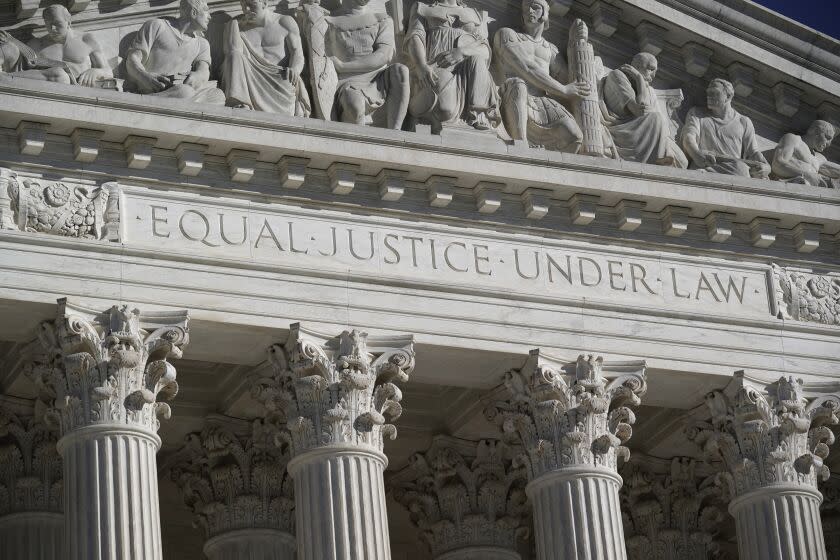Key quotes from Supreme Court's affirmative action ruling: No to race, yes to discrimination victims

- Oops!Something went wrong.Please try again later.
- Oops!Something went wrong.Please try again later.
The Supreme Court's opinion about affirmative action rejects the use of race as an admissions factor at colleges and universities.
But it does not close to door to giving applicants extra consideration if they have suffered bias, discrimination or hardships.
It means that efforts to diversify will need to change at many colleges and universities, and admissions offices will need to rely on what is often described as "race-neutral" policy that focuses on the hardships and experiences of individual applicants.
Read more: Supreme Court strikes down race-based affirmative action in college admissions
Here are some key quotes from the opinion by Chief Justice John G. Roberts Jr. and the dissents from Justices Sonia Sotomayor and Ketanji Brown Jackson:
Roberts:
"The entire point of the Equal Protection Clause is that treating someone differently because of their skin color is not like treating them differently because they are from a city or from a suburb, or because they play the violin poorly or well."
That means "race may never be used as a 'negative' and that it may not operate as a stereotype. ... Our cases have stressed that an individual’s race may never be used against him in the admissions process."
The admissions policies at Harvard and the University of North Carolina may have been "well-intentioned and implemented in good faith," but they use race "as a stereotype" for giving preferences to some students over others.
Admissions officers may consider an individual student's full story, even if it includes their race, he said.
"Nothing in this opinion should be construed as prohibiting universities from considering an applicant’s discussion of how race affected his or her life, be it through discrimination, inspiration, or otherwise. ... A benefit to a student who overcame racial discrimination, for example, must be tied to that student’s courage and determination. Or a benefit to a student whose heritage or culture motivated him or her to assume a leadership role or attain a particular goal must be tied to that student’s unique ability to contribute to the university. In other words, the student must be treated based on his or her experiences as an individual — not on the basis of race."
Many universities have focused too much on race, he said.
"They have concluded, wrongly, that the touchstone of an individual’s identity is not challenges bested, skills built, or lessons learned but the color of their skin. Our constitutional history does not tolerate that choice."
Sotomayor:
"Today, this court overrules decades of precedent and imposes a superficial rule of race blindness on the Nation. The devastating impact of this decision cannot be overstated. The majority’s vision of race neutrality will entrench racial segregation in higher education because racial inequality will persist so long as it is ignored."
Read more: 'We're really worried': What do colleges do now after affirmative action ruling?
"This supposed recognition that universities can, in some situations, consider race in application essays is nothing but an attempt to put lipstick on a pig. The court’s opinion circumscribes universities’ ability to consider race in any form by meticulously gutting respondents’ asserted diversity interests."
Jackson:
"Gulf-sized race-based gaps exist with respect to the health, wealth, and well-being of American citizens. They were created in the distant past, but have indisputably been passed down to the present day through the generations. Every moment these gaps persist is a moment in which this great country falls short of actualizing one of its foundational principles — the 'self-evident' truth that all of us are created equal."
"Our country has never been colorblind. Given the lengthy history of state-sponsored race-based preferences in America, to say that anyone is now victimized if a college considers whether that legacy of discrimination has unequally advantaged its applicants fails to acknowledge the well-documented 'intergenerational transmission of inequality' that still plagues our citizenry."
Get the best of the Los Angeles Times’ politics coverage with the Essential Politics newsletter.
This story originally appeared in Los Angeles Times.

